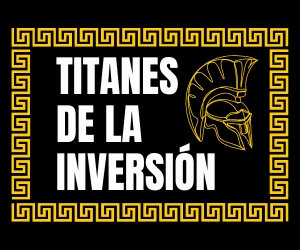Discover why David Einhorn is a key figure on Wall Street and his impactful investment philosophy. Learn about Greenlight Capital and its winning strategies.
Home
»
Investments
»
WHAT IS RENTING IN REAL ESTATE
This guide teaches you what renting in real estate is, the differences from traditional renting, and the benefits it offers, so you can make informed decisions in your real estate investments.

Definition of Renting
In the world of real estate and property trading, renting has become an attractive strategy for investors and users. But what exactly is renting in real estate? It is a long-term lease agreement where the lessee (the one who rents) has the right to use a property in exchange for a periodic fee, usually monthly. Unlike traditional renting, renting often includes additional services such as maintenance, insurance, and technical assistance.
Renting is common in the business sector, where companies choose to rent offices, commercial spaces, or industrial areas without the need to purchase them. This frees up capital that can be invested in other areas of the business, such as trading stocks or cryptocurrencies.
Main Characteristics of Renting:
Duration of the contract: Generally medium to long term, between 2 and 5 years.
Included services: Maintenance, repairs, insurance, and in some cases, updates or improvements to the property.
Fixed installments: Periodic payments established from the beginning, facilitating financial planning.
Purchase option: At the end of the contract, it is possible to acquire the property at a previously agreed price.
Practical Example:
Imagine a tech startup in a major city that needs a modern office space. Instead of buying a property, it opts for a renting contract. For a monthly fee, it gets a fully equipped office with maintenance and services included. This allows it to allocate more capital to business development and investments in financial markets.
Renting is not only beneficial for companies; individuals can also take advantage of this option, especially in real estate markets with high volatility or elevated prices. It is a way to access quality properties without the financial commitment that a mortgage entails.
Comparison with Leasing:
It is important not to confuse renting with leasing. Although both are lease agreements, leasing is more oriented towards the final acquisition of the asset, while renting focuses on the use and enjoyment of the property, without necessarily contemplating its purchase at the end of the contract.
In property trading, renting can be a strategy to diversify investments and generate stable income through the received fees. Investors can acquire properties to offer them for renting, taking advantage of tax benefits and growing demand in this sector.
In summary, renting in real estate is a flexible and efficient alternative that allows the use of properties with added services, providing advantages for both lessors and lessees. It is an option to consider in any real estate investment strategy or business resource management.
Differences with Traditional Renting
At first glance, renting and traditional renting may seem similar, as in both cases you pay for the use of a property. However, there are key differences that distinguish them and can influence your investment or property use decisions.
Included Services: In renting, the monthly fee typically includes additional services such as maintenance, repairs, and insurance. In traditional renting, these costs are usually the tenant's responsibility or negotiated separately.
Contract Duration and Flexibility: Renting contracts are generally medium- to long-term and may offer options for renewal or early termination. Traditional renting may have shorter contracts and less flexibility in terms of exit.
Purchase Option: Renting may include a purchase option at the end of the contract at a set price. In traditional renting, this option generally does not exist, and if it does, it requires further negotiations.
Tax Aspects: In some countries, renting fees may be tax-deductible for companies, as they are considered an operating expense. In traditional renting, tax deductions are more limited.
Responsibility for the Property: In renting, the owner maintains responsibility for the property and its condition. In traditional renting, the tenant may assume more responsibilities, especially in long-term contracts.
Flexibility for the Tenant: Renting offers greater flexibility to adapt to the tenant's changing needs, such as expanding or reducing the rented space. In traditional renting, making changes can be more complicated and costly.
Understanding these differences is crucial for choosing the option that best suits your needs and financial goals. If you seek to minimize risks and responsibilities, renting may be more suitable. If you prefer more control and are willing to assume certain responsibilities, traditional renting could be the option.
Benefits of Renting
Renting in real estate offers a range of advantages that make it an attractive option for both companies and individual investors. Below, we explore the main benefits and how they can positively impact your financial strategies.
Optimization of financial resources:
By not having to make a significant initial investment, you can allocate capital to other areas of your business or investment portfolio. This is especially useful in trading, where having liquidity can be crucial to taking advantage of market opportunities.
Cost certainty:
Fixed monthly payments facilitate financial planning since you know exactly how much you'll pay during the contract. There are no surprises from unforeseen maintenance expenses or major repairs.
Access to high-quality properties:
Renting allows you to access properties that might be unattainable if you had to purchase them. This can enhance your company's image or provide you with a more comfortable and efficient workspace.
Flexibility and adaptability:
The ability to adjust the space or even change the property according to your business needs is a significant benefit. In an environment as dynamic as trading, this flexibility is invaluable.
Tax benefits:
In many cases, renting payments are deductible as an operating expense, which can reduce your tax burden. Consult with a financial advisor to understand how to apply this in your specific situation.
Maintenance and support included:
Forget about worrying over repairs or maintenance; the owner takes care of it. This allows you to focus 100% on your core activities.
In conclusion, renting in real estate is a powerful tool to optimize your resources, offer flexibility, and improve your financial and operational position. As Warren Buffett once said, "Risk comes from not knowing what you're doing." Knowing and understanding renting allows you to minimize risks and maximize opportunities in the real estate and trading world.
YOU MAY ALSO BE INTERESTED









